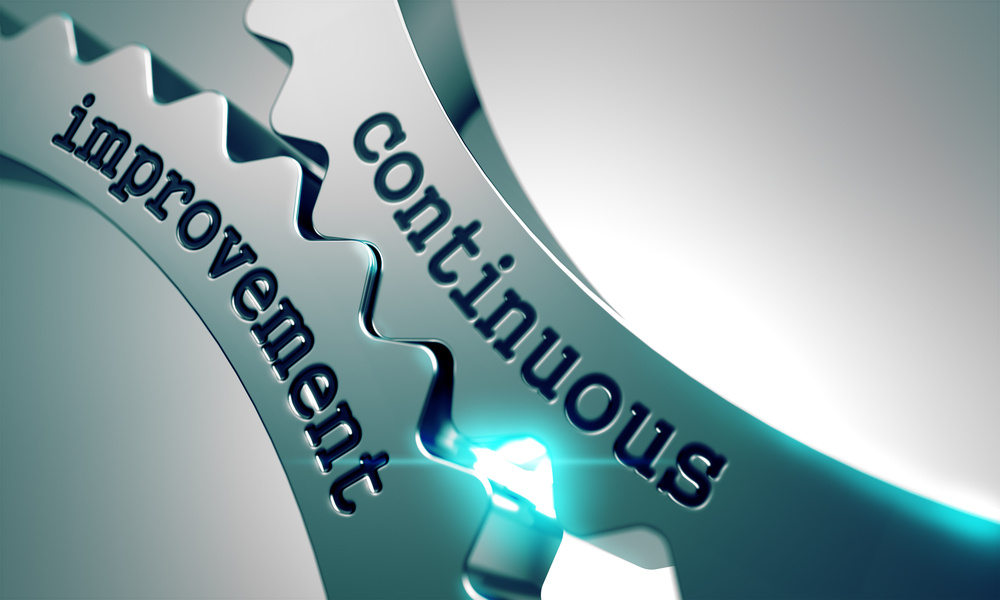Logistics management is a crucial aspect of any business, big or small. It involves the coordination and management of the movement of goods, materials, and products from one place to another. The aim of logistics management is to ensure that the right products are delivered to the right place, at the right time, and at the lowest cost possible.
In this article, we will cover the basics of logistics management 101, including the logistics management definition, what it entails, the logistics management process, and how to get started with implementing your strategy.
What is Logistics Management?
Logistics management can be defined as the process of planning, implementing, and controlling the movement of goods, materials, and products from the point of origin to the point of consumption. It encompasses all activities involved in the procurement, storage, and transportation of goods, materials, and products. The goal of logistics management is to ensure that the right products are delivered to the right place, at the right time, and at the lowest cost possible.
What Does Logistics Management Entail?
Logistics management encompasses a wide range of responsibilities, including procurement, storage, transportation, and distribution of goods, materials, and products. It also involves the management of inventory levels, the coordination of transportation, and the management of the supply chain. The success of logistics management depends on the ability to effectively coordinate the movement of goods, materials, and products from the point of origin to the point of consumption.
The role of logistics management in the supply chain is critical in ensuring that the customer experience is positive. Logistics management is responsible for making sure that the products are delivered on time, in the right condition, and at the right place. A well-managed logistics system can help to improve the customer experience by reducing the time it takes to receive products and by ensuring that the products are of the highest quality.
The Logistics Management Process
The logistics management process can be divided into several steps, including planning, implementation, and control. The first step in logistics management is to develop a plan. This plan should outline the movement of goods, materials, and products from the point of origin to the point of consumption. It should also include a detailed schedule of transportation, storage, and distribution activities.
Once the logistics plan has been developed, the next step is to implement the plan. This involves coordinating the movement of goods, materials, and products, as well as the storage and distribution of products. The implementation of the logistics plan requires the use of various tools and technologies, including transportation management systems, warehouse management systems, and inventory management systems.
The final step in the logistics management process is to control and monitor the movement of goods, materials, and products. This involves monitoring the transportation, storage, and distribution of products to ensure that they are delivered on time and in the right condition. The control and monitoring process also involves monitoring inventory levels and ensuring that the supply chain is functioning as efficiently as possible.
How to Get Started with Implementing Your Strategy
Having a well-designed logistics management strategy is essential for the success of any business. The first step in developing a logistics management strategy is to understand the business's logistics needs. This includes identifying the products that need to be transported, the transportation methods that will be used, and the storage and distribution requirements.
Once the logistics needs have been identified, the next step is to develop a detailed plan for the movement of goods, materials, and products. This plan should include a detailed schedule of transportation, storage, and distribution activities, as well as a detailed budget for each activity. The plan should also outline the tools and technologies that will be used to support the logistics management process.
The implementation of the logistics management strategy requires careful planning and execution. It is important to have clear goals and objectives for the logistics management process and to ensure that all stakeholders are aware of their responsibilities. Communication is key to the success of any logistics management strategy, and it is important to ensure that all parties involved in the logistics process are informed and aware of their roles and responsibilities.
In order to ensure the successful implementation of a logistics management strategy, it is important to have a system in place for monitoring and controlling the movement of goods, materials, and products. This may involve the use of transportation management systems, warehouse management systems, and inventory management systems. These systems can provide real-time visibility allowing for quick and efficient decision-making.
Start Your Logistics Planning Today!
Are you looking to improve your business's logistics management? Look no further! At Visigistics, we understand the importance of effective logistics management and are here to help. Let us be your logistics consultant and assist you in developing a comprehensive logistics plan. Our experienced team will work with you to understand your business's unique logistics needs and help you implement a strategy that will improve the customer experience, reduce costs, and increase efficiency. Don't let the complexities of logistics management hold your business back. Contact us today and see the difference that a well-designed logistics management strategy can make.
Logistics Management Key Definitions
What is a shipper?
A shipper refers to an individual or entity responsible for initiating the transportation of goods. This term can encompass a broad range of individuals, depending on the specific method of freight shipping being utilized. The shipper is typically the party who arranges for the goods to be transported from one location to another, ensuring that they are properly packaged, labeled, and ready for shipping. They hold the responsibility for organizing the logistics and coordinating with carriers or shipping companies to facilitate the movement of the goods. Ultimately, the shipper plays a crucial role in the transportation process by initiating and overseeing the shipment of goods to their desired destination.
What is a Consignee?
A consignee is a key term in the logistics and shipping industry, referring to the individual or entity designated to receive goods being shipped. This party is typically named in the shipping documents, including the bill of lading, air waybill, or any other transport document, indicating their legal right to claim the delivery of the merchandise upon its arrival at the specified destination. The consignee can be the buyer themselves, a third-party logistics provider, or an authorized agent acting on behalf of the final recipient. Their responsibilities include ensuring the goods are cleared through customs if required, paying for the goods as per the terms of sale, and arranging for the goods' collection or delivery from the final point of shipment. Understanding the role of the consignee is crucial for smooth international and domestic transactions, as it helps clarify the parties involved in the transfer and receipt of goods, ensuring the successful completion of the shipping process.
What is a carrier?
A carrier refers to either an individual or a company that undertakes the task of transporting freight in exchange for a specific fee. Often, a carrier is chosen due to their expertise and experience in ensuring the safe and effective transportation of cargo. While the shipper may be the entity or individual who initiates the shipment of the freight, it is the carrier that assumes the responsibility of handling the legitimate transportation and logistical aspects of moving the cargo. In summary, a carrier is a professional entity entrusted with the task of efficiently and securely transporting freight.
What is outbound freight?
Outbound freight is the term used to describe any type of cargo or goods that are being transported out of a warehouse, business, or facility and are destined for another location. It specifically refers to the movement of freight that was initially received as inbound, delivered to the warehouse and is now being collected and shipped to a different destination. In other words, when a shipment or package that was previously brought into a facility is being picked up and moved elsewhere, it is considered outbound freight.
What is inbound freight?
Inbound freight refers to shipments that are in transit from a vendor and are destined for a specific facility or business, typically a warehouse. It encompasses the movement and transportation of goods from the point of origin to the intended destination. The term is used to describe cargo that is being delivered and stored at a designated location for further processing, distribution, or use. In essence, inbound freight denotes the movement of goods towards a business or warehouse, emphasizing the journey and delivery process prior to reaching its final destination.
What is cartage?
Cartage is a term used to describe the transportation of goods or freight from one location to another within the same city or local area. It involves the movement of cargo, usually by trucks or other vehicles, to deliver the items to their intended destination. This service is typically provided by logistics companies or freight carriers, and it plays a crucial role in facilitating the efficient movement of goods within a specific area. Cartage ensures that businesses and individuals can easily transport their products or shipments to nearby locations, saving time and costs compared to longer-distance transportation methods.
What is a blind load?
A blind load can be defined as a type of shipment where both the shipper and the receiver remain anonymous to each other. This means that the shipper does not have any information about who the receiver is, and vice versa. Additionally, the concept of a blind load can also extend to situations where the specific origin or destination of the shipment is intentionally kept concealed. In summary, a blind load refers to a shipment where the identities of the shipper, receiver, or both, as well as the origin or destination, are unknown or intentionally hidden.
What is a backhaul?
A backhaul refers to the return trip of a truck that is currently transporting cargo. It involves the transportation of goods back to the point of origin, where the freight was initially loaded. Essentially, it is the opposite journey of delivering the cargo. During a backhaul, carriers may sometimes offer discounts in order to secure freight for their return trip.
What is full truckload (FTL) shipping?
Full truckload (FTL) shipping refers to a transportation method specifically tailored for shippers who have a sufficient volume of cargo to occupy an entire trailer. Unlike less-than-truckload (LTL) shipping, where multiple shipments from different shippers are combined to fill a trailer, FTL shipping ensures that a truck is loaded solely with one type of cargo, enabling it to move directly from the point of origin to its destination without any intermediate stops or transfers. In essence, FTL shipping offers a faster transit time compared to LTL shipping due to the dedicated use of an entire truck for a single shipment, resulting in efficient and expedited delivery of goods.
What is intermodal shipping?
Intermodal shipping refers to a freight delivery method that involves combining multiple modes of transportation to transport goods from one point to another. It is employed when a shipment cannot be efficiently transported using just one mode of transport. Common modes of transport used in intermodal shipping include truck, ocean vessel, rail, and air freight. This means that if a cargo needs to be picked up at one location and delivered to another, and it requires, for example, both truck and train transportation, intermodal shipping would be utilized to seamlessly transfer the shipment from one mode of transport to another during the journey.
What is flatbed hauling?
Flatbed hauling refers to a specialized method of transportation used for transporting oversized or unusually shaped goods that cannot be accommodated by standard trucks. It is primarily employed for items that surpass the weight or size limitations of conventional vehicles. This particular shipping approach involves the use of flatbed trailers, which are characterized by their open sides and the absence of a roof. These trailers provide unobstructed access to the freight during the loading and unloading process. Whether it's large machinery, construction equipment, or other bulky cargo, flatbed hauling ensures the safe and efficient transportation of such items that cannot be transported by regular trucks.
What is Less-Than-Truckload (LTL) freight?
Less-Than-Truckload (LTL) freight refers to a shipment that does not take up the entire space within a truckload. When you have LTL freight, it is typically transported by a common carrier. Unlike a full truckload, where the entire truck is dedicated to one shipment, LTL freight may be sharing the same trailer with other shippers' goods. This sharing of space allows the carrier to optimize their resources and accommodate multiple shipments in a single trip.
As a result of this arrangement, LTL shipments can often take longer to reach their destination compared to full truckload shipments. Since the carrier needs to make multiple stops to accommodate different shippers, the shipment may need to be unloaded and reloaded at various points along the route. This process can add extra time to the overall transit time of the LTL freight.
What does BOL mean?
The term BOL stands for bill of lading, which is a document serving as a contract between the carrier and the shipper. It encompasses comprehensive information about the items being shipped and covers every aspect of the shipment. The bill of lading meticulously describes the contents of the shipment, the destination it is headed to, and other relevant details. In essence, the bill of lading provides all the necessary information one needs to know about the shipment.
What is a PRO number?
A PRO number is a unique identifier assigned by the shipper immediately after the carrier picks up a shipment. Its purpose is to assist shippers in tracking the location of the freight throughout its journey. Think of it in a similar way to a tracking number provided when you order a product online or send a package to someone, but in this case, it pertains specifically to the freight shipping industry. By using a PRO number, shippers can keep tabs on the whereabouts of their shipments at any given time.
Need help with improving your logistics, contact us today to talk about how you would like to improve.
Other Frequently Asked Questions:
What are accessorial services and fees?
Accessorial services and fees in freight shipping refer to additional services provided by carriers beyond the basic pick-up and delivery of shipments. These services are not included in the standard shipping process and may incur extra charges known as accessorial fees. Examples of common accessorial services include lift gate service, inside pick up or delivery, residential service, reweigh and inspection, cubic capacity or density rules, collect on delivery (COD), fuel surcharge, arrival notification, and insurance.
Carriers typically outline these services and associated fees in a rules tariff or standard rate schedule, which may be accessible online or upon request. Transportation management systems (TMS) technology utilized by carriers or third-party logistics providers (3PLs) often have these rates pre-loaded, enabling shippers to understand when accessorial fees apply based on the specific characteristics of their shipment.
Who pays the charges for a freight shipment?
The charges for a freight shipment can be paid by the shipper, consignee, or a third party. In a prepaid shipment, the shipper is responsible for the freight charges. In a collect shipment, the consignee is the party responsible for paying the charges. A third-party billed shipment involves a third party, not the shipper or consignee, who receives the invoice and pays for the shipment on behalf of either the shipper or consignee. When partnering with a reputable third-party logistics provider like Logistics Plus, all shipments are typically designated as third-party billed. This allows for accurate auditing of bills and the convenience of receiving a consolidated invoice for all shipping activity.
What is freight shipping?
Freight shipping involves the transportation of goods, typically in larger quantities that exceed parcel size, using specialized carriers such as less-than-truckload (LTL) or full truckload (FTL) services in the United States. LTL shipments, which take up only a portion of a truck's trailer, usually range from 150 to 10,000 pounds and are commonly placed on pallets or skids for easier handling. On the other hand, FTL carriers operate without a set network and handle shipments directly from pickup to delivery.
When utilizing LTL services, businesses essentially rent space within a trailer to transport their goods. This process can be more flexible, but it also requires careful consideration to choose the right carrier that offers reliability, safety, and cost-effectiveness. Finding suitable truckload carriers involves evaluating various factors, such as equipment availability and pricing, which can make the selection process time-consuming but crucial for successful freight shipping operations.
How should I pack my shipments?
When preparing shipments, it is vital to package items securely to prevent any damage during transport. Ensure that items are packed, crated, or palletized properly to maintain their integrity throughout the shipping process. Utilize banding, shrink-wrap, stretch-wrap, or breakaway adhesive to securely fasten cartons to the pallet, minimizing the risk of shifting or damage. Freight carriers can disclaim liability for damages caused by improper packaging, underscoring the importance of proper packing techniques.
To optimize space utilization and minimize costs, it's essential to stack cartons neatly on the pallet without any overhang. Maintain a flat top surface to ensure stability during transportation. Proper labeling of packages is paramount for efficient handling and tracking. Efficient packing not only safeguards the items but also reduces 'dead space' within the shipment, ultimately leading to more cost-effective freight charges.
What happens if my freight shipment is damaged?
If your freight shipment sustains damage, we will work with you to ensure the claim is filed with the carrier.
Is my freight delivery service guaranteed?
The guarantee of freight delivery service can vary depending on the type of service you choose. Standard LTL or truckload service typically does not come with a guarantee for delivery on a specific day or within a specific date range. It is crucial to choose a reliable carrier if timeliness is important for your shipment. Some carriers offer additional services such as 'guaranteed' or 'expedited' delivery options for an extra cost. These options may provide peace of mind for customers who require precise delivery timelines.
It is worth noting that carriers may not guarantee their pickup dates or times either. When scheduling a freight shipment pickup, it is recommended to allow sufficient time for the carrier to arrive. Providing a 'dock time' or 'pickup availability' window can help ensure that the carrier can accommodate your schedule. Working with a knowledgeable third-party logistics consultant like Visigistics can assist you in selecting a carrier that aligns with your specific delivery needs and preferences.
How can Visigistics help me save on my freight shipping?
Visigistics specializes in helping businesses reduce costs and enhance efficiency in their freight shipping operations. With almost two decades of experience, our dedicated team of logistics experts offers a comprehensive approach to saving you money on your shipping expenses.
One key way in which Visigistics can help you save on your freight shipping is through a complimentary freight analysis. By analyzing your shipping activity, we identify areas where costs can be minimized and operating efficiency can be enhanced. Our innovative Transportation Management System (TMS) equips you with cutting-edge online tools to compare rates from various carriers, book shipments, monitor deliveries, and more, all in a cost-effective manner.
The services offered by Visigistics are designed to have a positive impact on your bottom line without any additional fees. By leveraging our expertise and resources, your business can benefit from increased savings and operational effectiveness in managing your freight shipments. Contact us today for further details or to request a quick quote for your next shipment.





